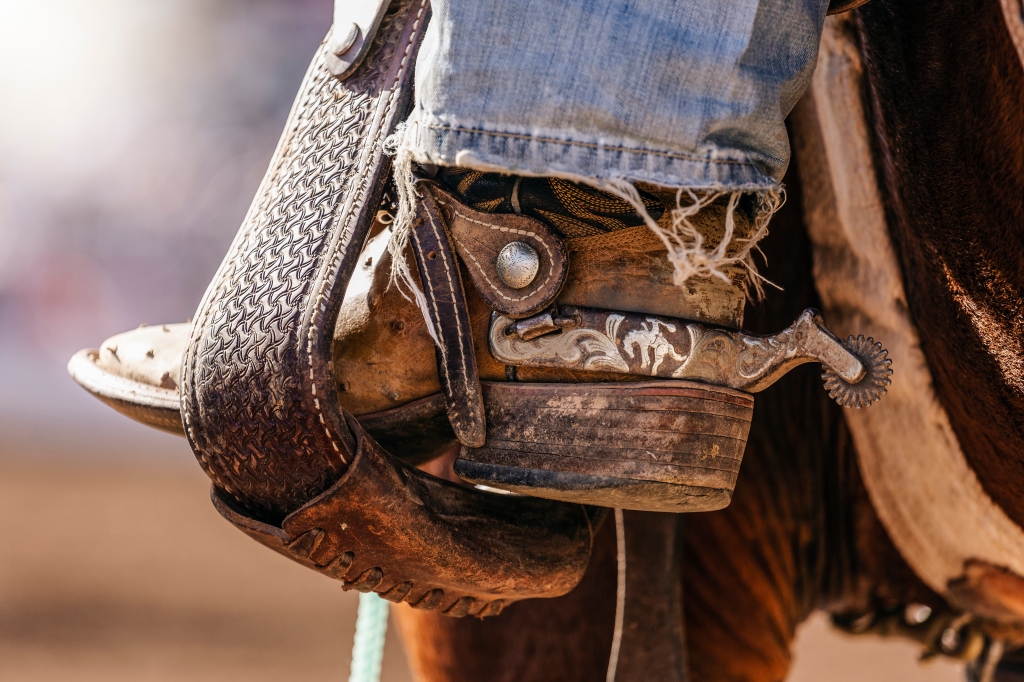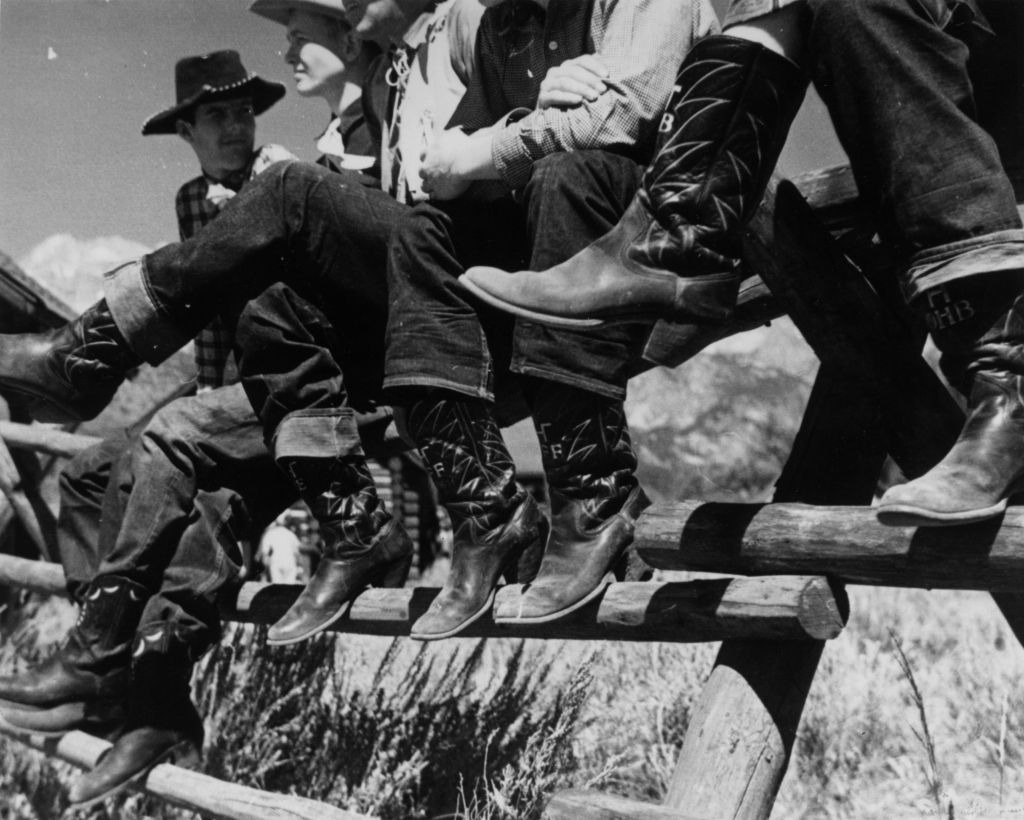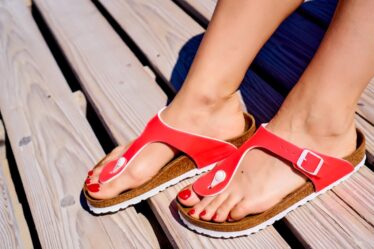
From cattle drives to catwalks, the cowboy boot has gone through quite a transformative journey.
One of the most iconic footwear styles traces its origins to the late 1870s in the old American West.
A combination of tough terrain, cattle drives and safety while riding horseback all contributed to the iconic footwear’s design.
Cowboy culture
The story of the cowboy boot is the story of the cowboy.
“There’s no more recognizable symbol worldwide than the American cowboy,” said Michael Grauer, McCasland Chair of Cowboy Culture and Curator of Cowboy Collections and Western Art at the National Cowboy Heritage Museum in Oklahoma City, Oklahoma.
“They represent freedom and liberty, they generally represent hard work and all qualities and values that most people admire, and [people] want to be part of that somehow,” he added. “So, wearing a cowboy boots or a cowboy hat, you somehow become part of that great tapestry that is cowboy culture.”
A critical instep
The cowboy boot as we know it today dates back to the post-Civil War trail driving era in Texas and Kansas.
According to Grauer, the main model for the cowboy boot at the time was the military boot. But unlike the cavalry men who rode on the balls of their feet, cowboys rode on the instep of their feet, leading to a key development in the shoe’s design.
“The real invention of the true cowboy boots is with the insertion of the steel shank in the instep,” Grauer said, noting that the steel shank was sewn between layers of leather to create a supported instep in the boots.
This development was critical in that, as cowboys rode with their feet in the stirrups of their saddles, wearing boots with a sturdier instep made riding more comfortable. In doing so, the addition of the supported instep allowed cowboys to ride for longer periods of time.
Heel, toe, doe-see-doe
Time spent in the saddle led to a few other developments toward the modern cowboy boot.

For example, the initial boots had a rounded toe design. A pointed toe was later adopted, however, as it allowed cowboys to slide their feet into the stirrups more easily.
A higher heel was also incorporated. By having a higher heel, cowboys could have an easier time preventing their feet and ankles from sliding into their stirrups.
“One of the things that a cowboy feared the most, seeing his foot caught in a stirrup and getting pitched off because then the horses would drag them,” Grauer said. “It was usually a fatal outcome if that happened.”
Safety on the job
Another part of the cowboy boot’s evolution involved the adoption of taller uppers or shafts. According to Grauer, the tall shafts were initially called “stovepipe”, as they looked like stove pipes on top of a boot. These uppers provided more protection for the leg as cowboys rode through the brush during cattle drives.
“I believe this with all my heart that cowboys built America,” Grauer said. “They built America because of the work that they did, which was dirty. It was dangerous, often boring. They made low wages, and they still make bad wages, but they’re still willing to do that, put food on the table.”
“This great country was built with beef and bread, and it needed strong boots to do that work, whether those are cowboy boots or farmers boots,” he added.
Boot-scootin’ boogie
In the time since its creation, the cowboy boot grew from its practical uses on cattle drives to becoming a fashion statement and part of popular culture.
Some of the folks who helped spread the popularity of the cowboy boot and overall cowboy aesthetic were musicians. According to Grauer, musicians who played what was then known as “hillbilly music” appropriated the cowboy aesthetic to make the musical genre more mainstream. This led to the genre later being called “country and western.”
From there, many others also began to sport the iconic footwear and style of cowboys.

“People for the most part appreciate what the cowboy stands for, even if that’s a mythological cowboy, and they want to somehow be a part of that — they want to appropriate part of that somehow,” Grauer said.
“So, wearing boots is very much part of that — being a little bit cowboy, I guess you could call it — by putting it on your feet,” he added.



